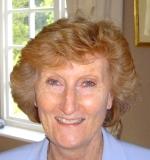How Stratified Systems Theory Can Help CEOs
Speaker A Yes, I think some of the issues we are facing, we've mentioned short CEO tenure. I think there was survey that's just been done by the economists in conjunction with hydrogen struggles. And ...
Transcript of the presentation video
NOTE: This transcript of the video was created by AI to enable Google's crawlers to search the video content. It may be expected to be only 96% accurate.
Speaker A Yes, I think some of the issues we are facing, we've mentioned short CEO tenure. I think there was survey that's just been done by the economists in conjunction with hydrogen struggles. And this is really something for me personally that's a bit of a passion because they interviewed 400 companies across Europe about what they as a board they did well and obviously it's quite a long survey and there were eight points. But what really stood out from that is the boards thought they managed risk very well, but actually they didn't manage CEO succession. And to have that gap in perception, to suggest that CEO succession is not a risk for the business, I'm really intrigued with. And we are doing some work developing a whole program around corporate governance and thinking about the role of the board. And of course, I think as an organization we can make a huge contribution to that whole area. I think organizations have a huge challenge at the moment. I think the pressure on CEOs to perform, you've got one or two quarters after you move into a role, before you need to start making a difference, puts a huge strain, a huge pressure on CEOs. I think the high capability CEOs can probably manage that balance, but I think that's a real challenge to be able to manage the long term. And I think it was the chairman of RTZ. There was an article in the UK Times about 18 months ago, and what he was trying to do was to say, I want to put in place in this organization a strategy, a positioning of the organization, which means in 25 years time, the young Turks of the day won't say, what were those old buffers doing 25 years ago? So having that long term perspective is tough. I think for CEOs there's tremendous pressure to perform well. You can certainly help them to think about the level at which their organization should be operating, how they should be engaging with their external environment, what are the challenges, what are the issues that are facing them, and to think about how realistically they can move there, where are the gaps? So certainly we can help them to identify the gaps and also to provide a blueprint for how they can get there in the future. We have to be realistic about that because there are all sorts of external pressures that we can't influence. But I think we can help enormously with that, certainly with the whole piece about talent. Where is the talent not just now, but where is that talent coming from in the future? How do you design organizations so that they're flexible to be able to cope with that change? Because we can no longer well, you know, we're going to have Fred bloggs in this role in five years time or three years time, four years time, because that role won't be there. But actually we have a framework for describing work in terms of the nature of the challenges. That means we can manage that succession planning in a more dynamic way. We talk to them, we listen to what their issues are and try and understand the needs. And sometimes maybe the need is not the problem, if that makes sense. I remember one client saying to us, please, we have a problem with capability in this organization. We have a great lack of capability. And so we started by just doing a review of the organization. And actually it was a very flat organization, but what we found was everything was compressed so that people were working a level below the level that ideally they should have been working for. And then we worked with everybody thinking about their current level of capability and we mapped that for the client. And what we found was actually there was a huge amount of untapped potential in that organization. That's not uncommon in the work that we do, I think in a lot of organizations. A huge amount of untapped potential. And what was when presenting this to the CEO, he said, well, we have two choices here. Either we can accept this and do something about it, or we can rubbish the data. And as a consultant, that's your kind of moment where you think and then he broke into a broad grin and he said, no, I actually think you're right. I think the presenting problem about a lack of capability wasn't the real problem. So I think it's about listening. It's about building the relationship. So on our major organizational design projects, we will very often say, well, let's do a small pilot. Let's just explore what this can add, what this can contribute before we do a major project. Because it's a huge leap of faith to expect them to commit to doing a complete organizational review, particularly if they're pretty large organizations, most of them.
Major organizations and consulting firms that provide Requisite Organization-based services





